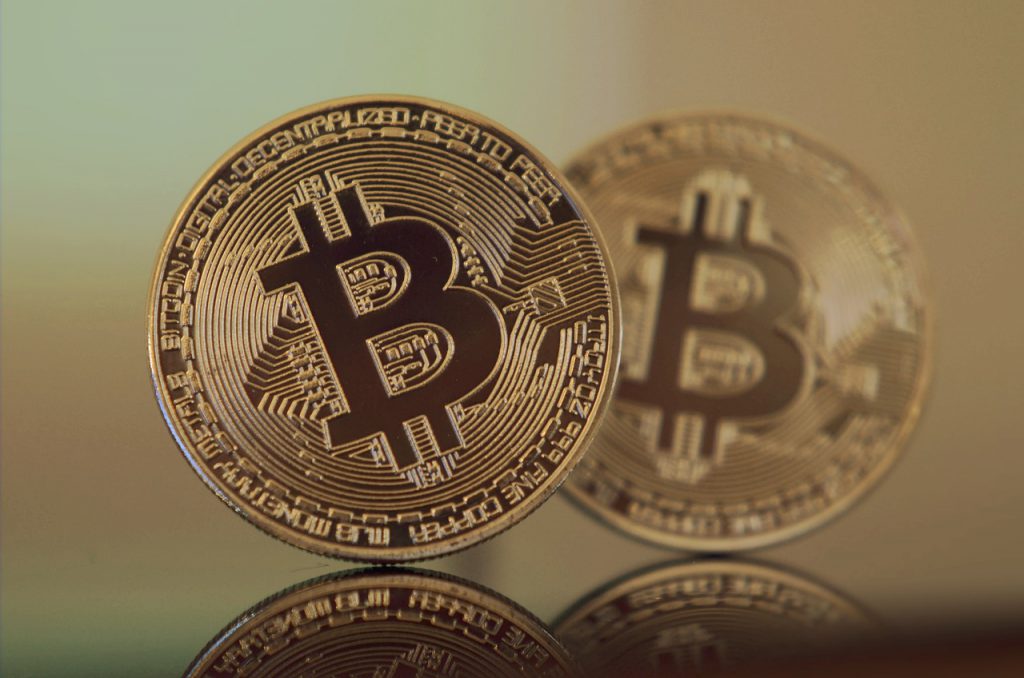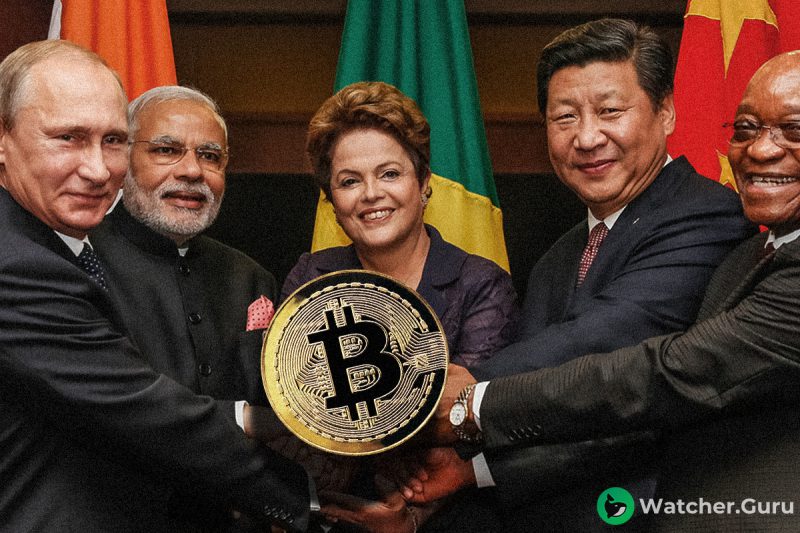Can the BRICS utilize Bitcoin to build a stronger economic future?
As BRICS (BRICS nations: including Brazil, Russia, India, China, and South Africa) continues to gain momentum from establishing a currency to forming new partnerships, could BRICS use Bitcoin to build a stronger economic future too?
These countries are known for their rapidly developing economies and are poised to become global superpowers shortly.
But can they utilize Bitcoin to build a stronger economic future? How would this shape the global economic landscape?
In this article, we’ll explore the potential of Bitcoin for BRICS countries, its advantages, and how these countries can leverage it to overcome current economic challenges.


Introduction to BRICS and Bitcoin
The BRICS countries collectively represent almost 42% of the world’s population, 23% of the global GDP, and 17% of the world’s trade. This makes them a significant player in the global economy.
On the other hand, Bitcoin is a decentralized digital currency that operates on a peer-to-peer network. It is not regulated by any central authority and offers fast, secure, and low-cost transactions.
While Bitcoin has gained popularity over the years, it is still considered a niche currency and has not been widely adopted by mainstream businesses.
However, its potential for BRICS countries cannot be ignored. These countries face numerous economic challenges, including high inflation rates, political issues, and corruption.
Bitcoin can provide them with a viable alternative to traditional currencies and help them overcome these challenges. One of their most vital goals is reducing reliance on the US dollar.
Understanding Bitcoin and its Potential for BRICS Countries
Bitcoin has several advantages that make it an attractive option for BRICS countries.
Firstly, it is not subject to government control, making it a valuable tool for countries facing political issues.
Instead, Bitcoin operates on a decentralized network, verifying and recording all transactions on a public ledger. This ensures transparency and eliminates the need for third parties, reducing transaction costs and time.
Secondly, Bitcoin offers a high degree of security and privacy. Transactions are encrypted and cannot be reversed, ensuring that funds cannot be stolen or tampered with.


This is particularly important for BRICS countries with high corruption and fraud levels. Bitcoin can help eliminate these issues by providing a secure and transparent transaction platform.
Finally, Bitcoin offers fast and low-cost cross-border transactions. This is especially relevant for BRICS countries, which often have high fees and lengthy processing times for international transfers.
Bitcoin can provide an alternative to traditional payment methods and help reduce the cost and time of cross-border transactions.
Current economic challenges faced by BRICS countries
BRICS countries face numerous economic challenges hindering their growth and development.
One of the biggest challenges is high inflation rates. Several BRICS countries, including Brazil, Russia, and South Africa, have struggled with inflation rates exceeding 10%. This has led to decreased purchasing power and a decline in economic activity.
Another challenge facing the BRICS countries is political. Several of these countries have experienced political turmoil in recent years, which has led to a decline in foreign investment and economic growth. Corruption is also a significant issue in many BRICS countries, with several ranking poorly on the Corruption Perception Index.
Finally, many BRICS countries face challenges with cross-border transactions. Traditional payment methods can be slow, expensive, and subject to fraud. This can make it difficult for businesses to expand internationally and for individuals to receive remittances from abroad.
Advantages of using Bitcoin for BRICS economies
Bitcoin offers several advantages for BRICS economies that can help overcome these economic challenges.
First, it can provide a secure and transparent platform for transactions. This can help eliminate corruption and fraud, which are significant issues in many BRICS countries. Bitcoin’s decentralized nature also makes it less susceptible to government corruption, providing a stable currency alternative for citizens.
Second, Bitcoin can provide a fast and low-cost platform for cross-border transactions. This can be particularly beneficial for businesses looking to expand internationally and for individuals looking to receive remittances from abroad. Bitcoin’s low transaction fees and fast processing times make it an attractive option for cross-border transactions.
Third, Bitcoin can help provide a stable store of value for BRICS economies. Several of these countries have struggled with high inflation rates, leading to decreased purchasing power. Bitcoin’s limited supply and decentralized nature can provide a stable store of value that is not subject to inflation like traditional currencies.
How BRICS can leverage Bitcoin for cross-border transactions


One of the most significant advantages of Bitcoin for BRICS countries is its potential for cross-border transactions. Traditional payment methods can be slow, expensive, and subject to fraud, making it difficult for businesses and individuals to expand internationally.
Bitcoin can provide a fast and low-cost alternative to traditional payment methods, enabling businesses to expand and individuals to receive remittances from abroad.
To leverage Bitcoin for cross-border transactions, BRICS countries could establish Bitcoin exchanges and encourage their citizens to use it as a payment method. They could also establish partnerships with Bitcoin companies to facilitate cross-border transactions and provide education on the benefits of using Bitcoin.
Governments could also consider accepting Bitcoin as a form of payment for government services, further promoting its use and adoption.
Conclusion
In conclusion, Bitcoin has significant potential for BRICS countries. Its decentralized nature, security, and fast cross-border transactions make it an attractive alternative to traditional currencies. BRICS countries can leverage Bitcoin to overcome economic challenges such as high inflation rates, political issues, and corruption. They can also use it to facilitate cross-border transactions and enable businesses to expand internationally.
While Bitcoin is still considered a niche currency, its potential for BRICS economies cannot be ignored. The future of Bitcoin in BRICS countries looks bright, and it will be interesting to see how these countries utilize it to build a stronger economic future.





